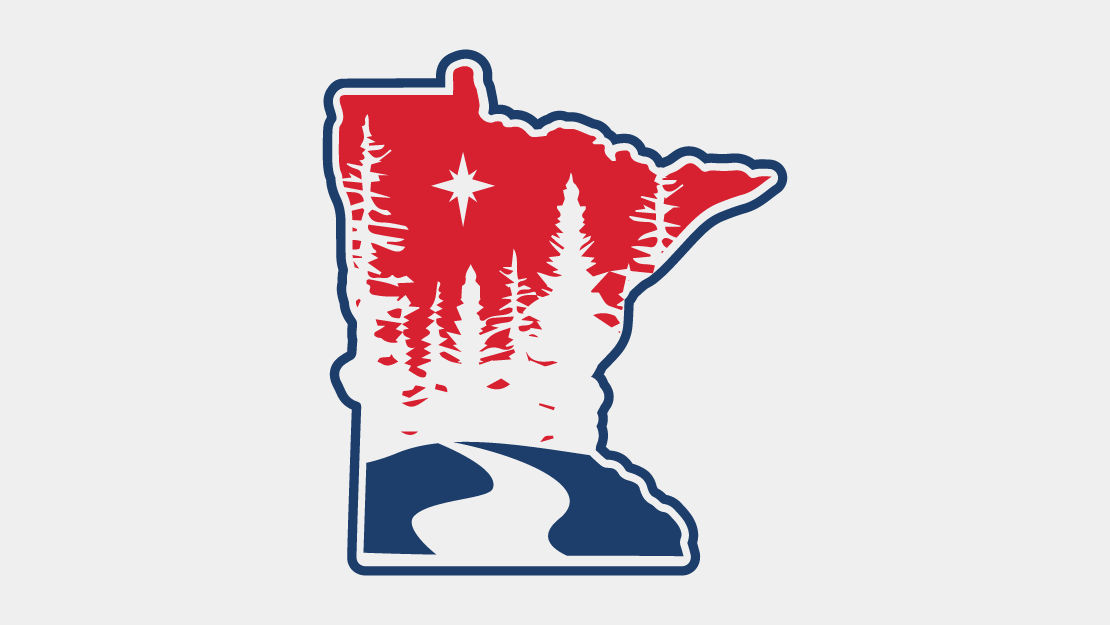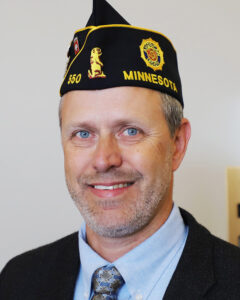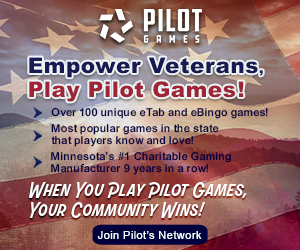From the Editor: What do members get for their dues?

I received a question from the adjutant of Spicer Post 545. What do I tell prospective members when I ask them to join, and they reply, “What do I get for my dues?”
I said I would reply in The Minnesota Legionnaire:
You get advocates in Washington, D.C., for your veterans’ benefits. If you enjoyed the G.I. Bill, VA Loan, VA Healthcare and other benefits, you need someone fighting on your behalf to get these benefits to the next generation of veterans. There are special interests that would like to spend that money on other things besides veterans.
Did you know how crucial The American Legion was in getting the PACT Act passed? The Blue Water Navy Act? The Forever G.I. Bill? Many other laws expanding vets benefits? When federal lawmakers in the late 2000s were considering privatizing the VA, guess which veterans organizations stood alone to prevent that from happening? The American Legion. We won, and we pushed to improve the VA, not break it apart.
You get advocates in St. Paul for veterans’ legislation. Every year, we are dealing with various veteran bills. Do you favor veterans courts? Did you know The American Legion had a major role in getting the Veterans Restorative Justice Act passed in 2021? We successfully pushed to have the eight-year property-tax-break sunset for surviving spouses removed. We push annually for a veterans omnibus bill so our measures don’t get caught up in politics.
We helped get the state government to allow veterans in homeless shelters to keep more of their disability and pension checks. We defend the benefits of charitable gambling for our communities and push for tax relief. We advocate for all kinds of things: license plates, hunting licenses, property tax relief for posts, funding for veterans homes, Post-9/11 Service Bonus, Gold Star families, CVSOs, on and on.

You get people who will fight for your VA claim. You get a nonprofit with high ratings on Charity Navigator and low or no administrative costs. You get a staff who will help your post help a struggling veteran make use of the Minnesota Veterans Assistance Fund and other local and state resources. You get The Minnesota Legionnaire. You get the Legion Magazine. You get your local post’s newsletter.
You get an organization that lets you pursue your interests. A few years ago, Army veteran Kristy Janigo was a member of Osseo Post 172. Then she was named to the Department Media & Communications Committee. Then she requested to move to the Legislative Committee because that was more fitting to her interests. Soon, the chair stepped away for health reasons, and she became the chair. Janigo is only 40, and she leads our legislative efforts at the Capitol. Amazing!
I can provide other similar examples from Baseball, Softball, Oratorical Contest, Boys State, Girls State, Pheasant Dinner, Jr. Shooting Sports, Bowling, honor guards, leadership, finance, service officer, membership, national security, event organization, on and on and on and on.
You get this group of motorcycle riders who raise funds for amazing causes. They just completed a mission that raised millions for scholarships for the children of those killed or disabled in combat. You get youth programs that cost less than most others and mentor today’s youth with pride in their country, positive outlook and good sportsmanship. You get people who understand the importance of civics, the U.S. flag, the Constitution, and law and order. You get Auxiliary and Sons organizations that will help out with anything when asked. You get people who know how to help a community after a natural disaster strikes.
You get a sense of purpose. This is important because someday, young veteran, you will retire. Someday, your kids will move out, your career will be done, and you will sit around wondering, “What can I do next?” Often, this is when veterans join. But why wait?
We raise all kinds of funds for all kinds of community needs: heat detectors at fire departments, scoreboards for school sports, therapy for combat-traumatized veterans, preventing veteran suicide and homelessness, American Legion Baseball, food shelves, clothing programs, Scouting, fireworks, Sister City initiatives, Legionville, honor guards, playground equipment, veterans memorials, trees in the parks and so on.
When I was in the Army, I felt like I had a strong sense of purpose. We had to win a war! I liked that sense of purpose. Now, being part of my post in Bloomington allows me to do a lot of good things for my community. By helping others, I help me.
There is dignity in community service. This is why we do what we do.
You get camaraderie and mutual helpfulness. Most veterans like being around other veterans. Yes, they sometimes disagree. Yes, they can be like herding cats. However, I find veterans forgive quickly, and they put past disagreements behind them easily. And when they come together for a mission and work in unison, they are unstoppable.
You might gather civilian friends through life, but I tell you, if you are down and out and struggling, the veterans will have your back. Those guys over there who are kidding around, giving you a hard time, making fun of your service branch, they are the ones who will get you gift cards to feed your family when you have no money for groceries.
They will talk with you if you feel suicidal and get you the help you need. They will pay the fees to send your kids to summer camp. They might even send you to a district, department or national convention. They will visit you when you are in the hospital. They are the ones who will honor you at your funeral. The bond is more than mere friendship.
I agree with Past National Commander Bill Oxford. Join as many veterans’ organizations as possible. Congress doesn’t know we belong to multiple ones. Oxford said he belonged to eight. I belong to four.
Veterans need to see dues as more of a donation than an expense. You pay dues in veterans organizations because it is the right thing to do for you, your comrades, your community, for America. It’s an honor and a privilege to belong. It’s not about, “What is in it for me?” It’s about, “What can I do to help?”
Yes, there are many small veteran nonprofits that apply Band-Aids to one problem or another, but the Legion is focused on the long term. We need a large veterans organization to move a large federal government. Join us. Help us.
The more fragmented we are, the less we accomplish.
Tim Engstrom is the communications director for The American Legion Department of Minnesota and editor of The Minnesota Legionnaire.


